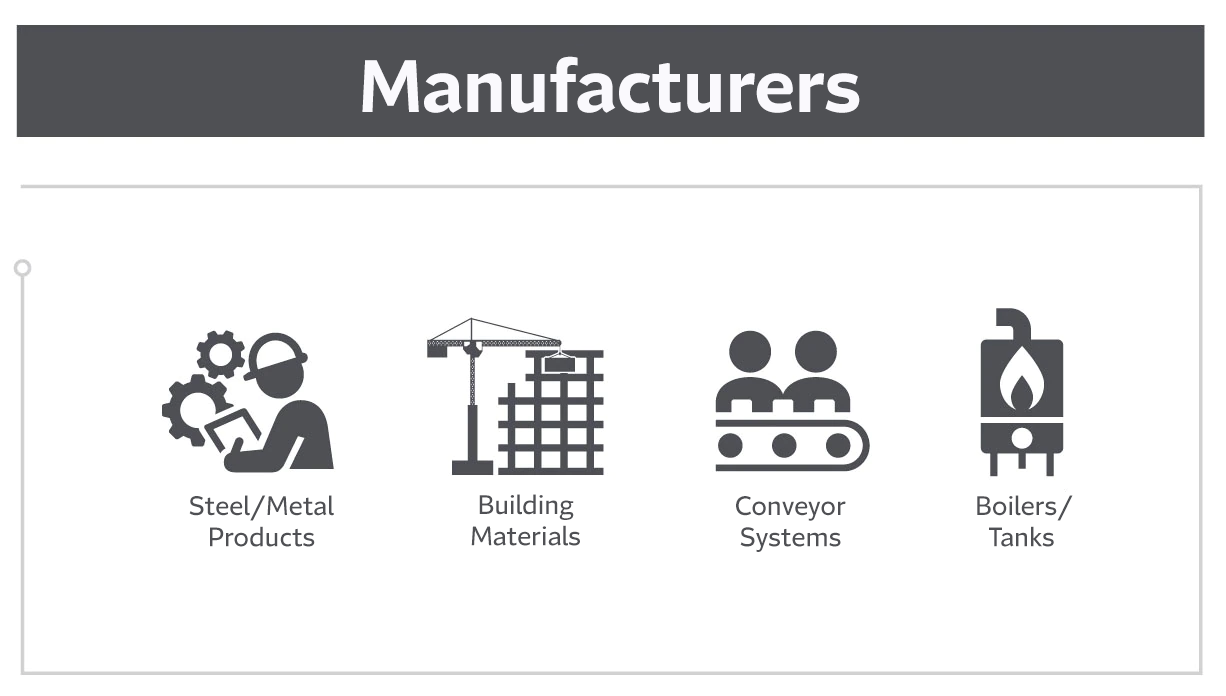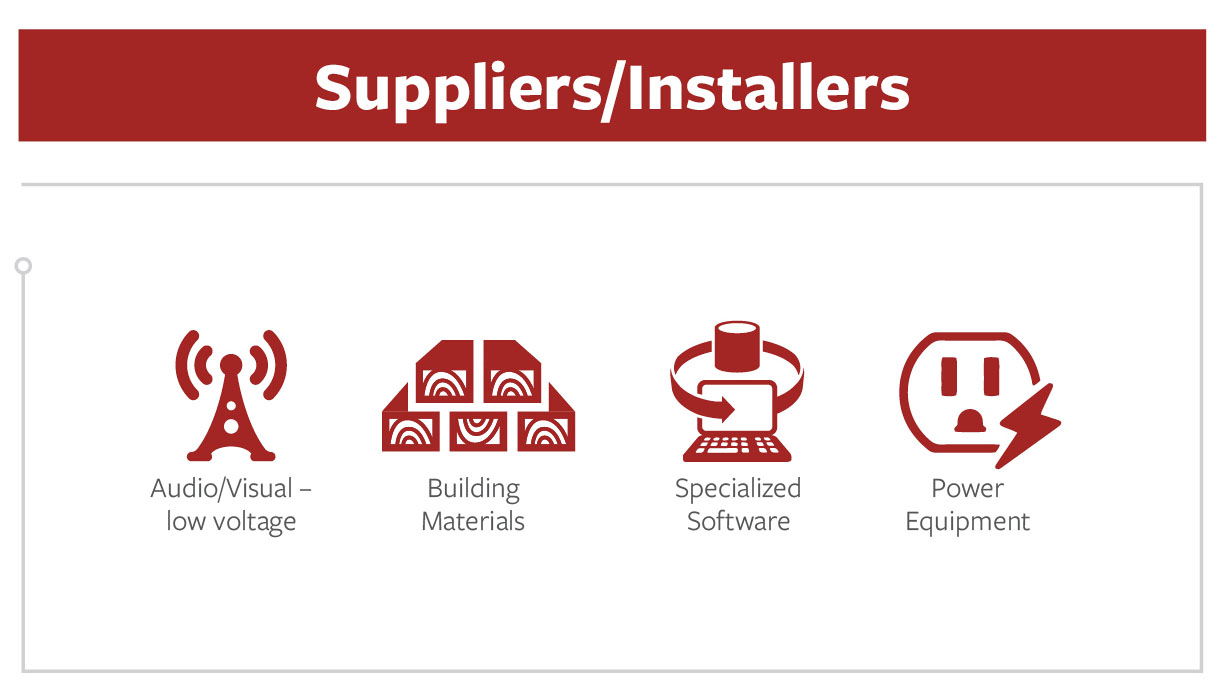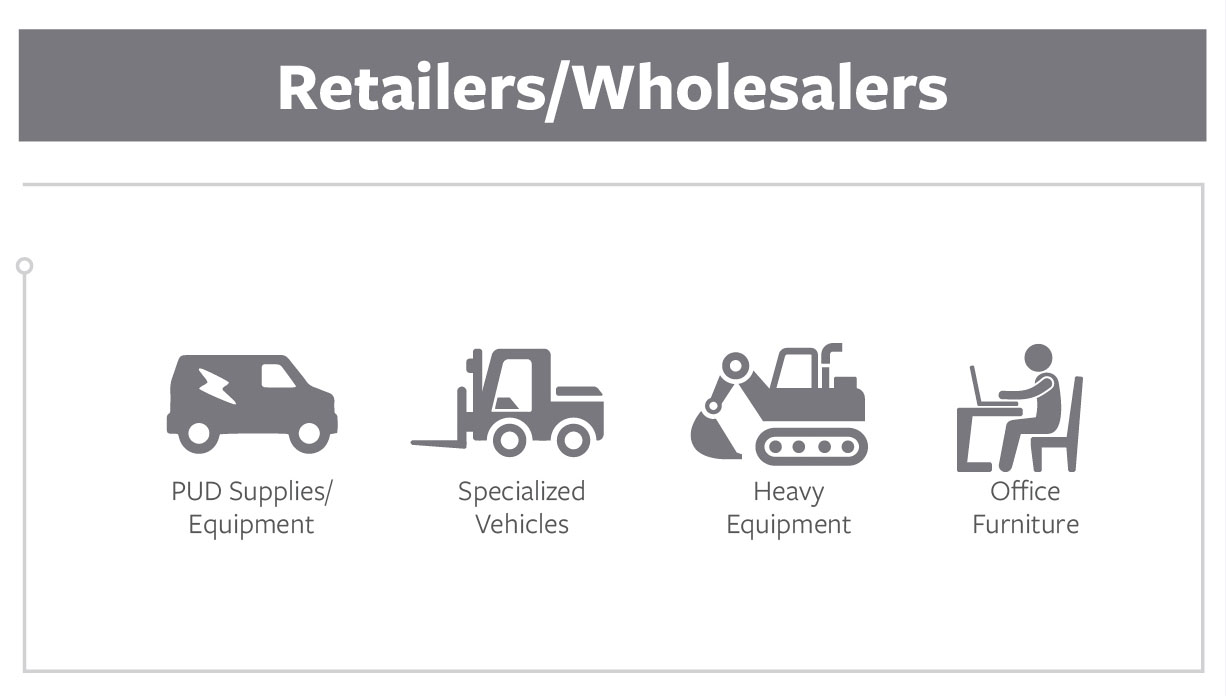What Types of Businesses Need a Commercial Contract Bond?


There are many types of businesses that might require a commercial contract bond as part of their total insurance program. While some people may think of construction when contract bonds are mentioned, service contractors, manufacturers, suppliers/installers and retailers/wholesalers may need a commercial contract bond when they enter into a contract to provide work or perform a service.




What are common types of commercial contract bonds?
Here are several common types of commercial contract bonds.
Bid bond – Affords protection to the obligee in the event that the successful bidder does not enter into a contract and does not provide the required surety bonds or other security.
Performance bond - Provides protection to the obligee if the principal defaults on its obligations under the bonded contract.
Payment bond – Guarantees that the principal will pay their subcontractors, labor and material costs associated with a bonded contract.
Maintenance bond – Guarantees the ongoing servicing of equipment or facilities during the duration of a contract.
Supply bond – Guarantees performance by the principal to furnish equipment, supplies or materials to the obligee.
Warranty bond – Guarantees to the project owner that the contractor who did the work will fix defective work or materials, in the event that an issue arises during the warranty period specified in the contract.
How do commercial contract bonds work?
If an organization or individual hires a company to deliver goods or services, a commercial contract bond helps to ensure that the work, services or products are provided in accordance with the contract terms. In other words, commercial contract bonds are performance bonds in which the surety (the company that provides the bond) guarantees to the obligee (typically a public entity, such as federal, state or local government or a private owner) that the principal (the company contracted to deliver goods or services) will perform their contractual obligations as specified in the underlying contract. A bond essentially guarantees that, should the principal fail to meet their contractual obligations, the contract will still be performed.
It’s important to choose a surety that understands the unique structures of commercial contractors, the complex and various contract provisions, the diverse industries and the different financial statements involved. Whether it’s a one-time request or a routine demand for surety bonds, Travelers has bond programs that offer a solid alternative to bank letters of credit or cashier’s checks, which can constrict liquidity and consume credit limits needed for working capital.
Here are some examples of how different types of businesses might use commercial contract bonds, and how the process typically works between the three parties involved.
Information technology companies and bid bonds
Consider there is a county government that plans to hire a single vendor to overhaul its computer platforms and implement a cloud software system. In most cases, government contracts are advertised for public bid, and the job may be awarded to the lowest bidder. A bid bond guarantees the contractor who wins the bid will enter into the service contract and provide any performance bonds that may be required.
For example, if the bid-winning company discovers that it underbid the project and performing the work would not be profitable, the company might decide not to enter into a contract with the county despite being awarded the bid.
If the winning bidder declines the work, the county may have to restart the bid process or award the work to another bidder – at a potentially higher price. But if the county requires a bid bond as part of the request for proposal, the county would be protected from assuming the additional costs associated with restarting the bid process or accepting a higher bid, up to the penalty of the bid bond.
Service businesses and performance bonds
Imagine a snow removal company in the Northeast contracts with the owner of a large retail complex to clear customer and employee parking lots of snow so that thoroughfares and walkways can be safely traveled. To ensure that the company adequately performs its snow removal duties, the owner of the retail complex might require the snow removal company to purchase a performance bond before agreeing to enter into the service contract.
If the snow removal company fails to clear the entranceways, exits and parking lots as specified in the service contract, the bond would provide for the costs to hire another snow removal company to finish the job, up to the penal sum of the bond.
Manufacturers and payment bonds
A payment bond guarantees that a contractor will pay its subcontractors and suppliers for goods and services. For example, consider a scenario in which a custom vehicle manufacturer receives an order for 50 passenger buses from a transportation company. The transportation company might require a payment bond from the vehicle manufacturer.
As the obligee of the payment bond, the transportation company could be protected from having to pay twice if it pays the vehicle manufacturer but the vehicle manufacturer does not pay the seat manufacturer for goods provided. If the seat manufacturer is not paid, it might sue the transportation company for payment. The payment bond is there to guarantee this payment.
Travelers: An experienced surety bond partner
With more than 100 years in the surety business, Travelers has a deep understanding of the individual needs of a broad variety of commercial contractors’ businesses and the complex, myriad contract provisions and financial documents involved, which can be a strong advantage for any bond client. Our unique expertise means our commercial contract underwriters write bonds for clients that traditional construction contract underwriters often turn away.
Approval typically requires that the applicant submit a solid financial statement with the relevant contract or purchase order and a completed questionnaire. An indemnity agreement would follow if the company supports the bond requested.
Contact an independent agent today for more answers to your bond questions and to discuss how Travelers can help meet your needs.



